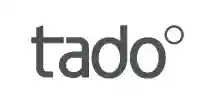The Rye Roxley blog.
All about the Raspberry PI, TrueNAS Scale, Media Servers and Home Automation.
The first line of defense and my gateway to the outside world is pfSense running on a NUC. It handles the initial routing for my network and provides a VPN, enabling me to connect from remote locations. My router (currently with Virgin) is set to modem mode, allowing pfSense to perform all the networking tasks.
Pi-Hole on a dedicated Raspberry Pi 4 manages both DHCP and DNS. It handles all static IP addresses through reservations. Previously, I used my router and server for these tasks, but if either of them went down, issues would arise. Therefore, I now rely on the Raspberry Pi, which has been stable for a couple of years. While the Raspberry Pi could serve additional functions, I prefer to use it exclusively for Pi-Hole. The ad-blocking feature is beneficial, though it can be overly aggressive and requires customization to suit my needs. However, this minor inconvenience is worth the significant benefit of having no ads.
I have been using iXsystems software since FreeNAS 8.0. It integrates well with my Windows desktops, and I have always taken advantage of the additional apps (originally Jails). In an ideal world, storage and apps would be separated, but I prefer running one device rather than two. TrueNAS serves as my media server and PVR, and I also run VMs on TrueNAS Scale.
ZoneMinder and Frigate handle CCTV monitoring and recording. ZoneMinder operates as a virtual machine on the TrueNAS Scale device, while Frigate runs as an app. ZoneMinder records every event and all movement within the cameras’ field of view. In contrast, Frigate uses AI object detection to be more selective in recording. A Coral USB Accelerator Edge TPU coprocessor ensures that the TrueNAS Scale CPU is not overloaded.







